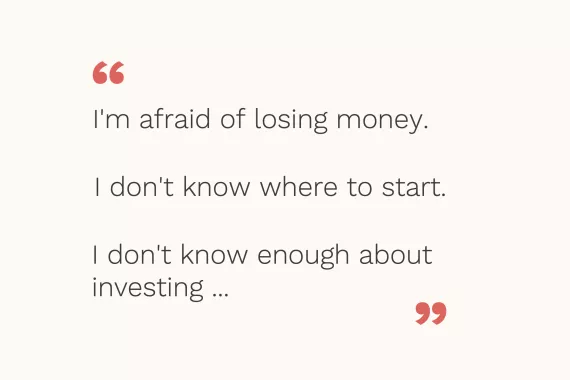Where we put our money can have such a positive impact on the world. We can create the utopia of our ethical dreams if we put our money in the right place. And that all starts with financial planning.

What is financial planning?
Financial planning is using your current financial situation (this includes your income, expenses, any debts you are in the process of paying off…) to plan for your future. Typically you’ll set yourself some long-term goals (eg. your pension), and a couple of medium goals too (eg. buying a house or a round the world trip).
By assessing your goals and the timeline you have to achieve them, you can work out how much you need to save / invest to make your dreams a reality
It’s not very often that you can say you’re making dreams come true, but with financial planning you can. It’s magic.
How do you create your financial goals?
Learn about two popular methods for goal-setting - the S.M.A.R.T and GROW methods, as well as how to make sure your short-term activities help you achieve long-term goals in this money school lesson.
What did 2020 teach us about financial planning?
In one way or another, Covid-19 has been a financial wake-up call for us all. From seeing just how essential an emergency fund is, to re-evaluating our retirement plans, the list goes on. But there’s one specific money lesson from 2020 that we want to highlight: the importance of ‘putting your money where your mouth is’, and using your values to help you build a personalised financial plan
Investing in your morals:
During a time where many people are struggling financially, charitable donations and socially responsible investing have shone through. From the late Captain Tom Moore raising over £30 million for the NHS, to the 2020 Schroders Global Investor Study learning that 77% of people would not invest against their personal beliefs, we’ve seen people pay greater attention to their financial values than ever before
The pandemic has caused a lot of people to consider their values and what is most important to them.
But how can you express your values in your financial plan?
Use responsible routes to achieve your goals
If your goal is to retire by 60 with a pension pot of £500,000, your short and medium-term activities will include saving and investing your money. It’s important that you take the extra time to make sure these activities are in line with your beliefs. How? Learn how to invest in a sustainable future with our on-demand course.
There are even new ways for you to save your money sustainably being developed all the time. Just last week, NS&I announced their upcoming ‘green saving’ initiative, which will allow premium bond holders to actively support and contribute to sustainable projects.
Reflect global change in your long-term goals
Your beliefs can do more than just support your long-term goals, they can also be the basis for them. If we use the same goal as before - retiring by 60, have you considered how your money could help bring about change to the gender pension gap
Did you know?
- Currently, the UK’s gender pension gap is estimated at around 40%.
- The average pension pot of a 65-year-old woman is just one fifth of a man the same age.
- Covid-19 has seen an increase in the global gender pension gap.
How might your goal of early retirement allow you to enact positive change for decreasing the pension gap, saving the planet & growing your money? Sounds like superhero stuff to us!
The most successful financial plans are those that are tailored to your individual ‘wants’ and ‘needs’ in life, which means you really can’t go wrong by aligning your goals with your values.
Take the next step in your investing journey and join our brand new on-demand course, ‘How to Invest in a Sustainable Future’
Discover more
-
Why you don't need to be afraid of investing.
Our 15 minute webinar is aimed at encouraging more women to take the plunge – but really, the facts apply to anyone who might be t... -
How you can support equality with your financial investment
Investments in companies that actively live and promote diversity and equality are increasing. Just a hype, or a good opportunity?... -
What women should know about money and investing
It all started when my dad suddenly died, leaving us in a whirlpool of receipts and bills, along with shock and grief. It took my ...


